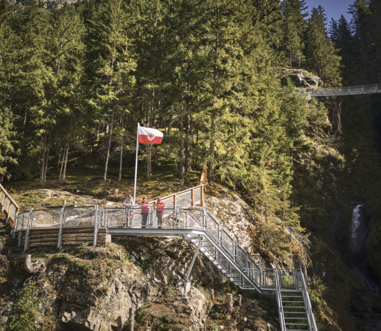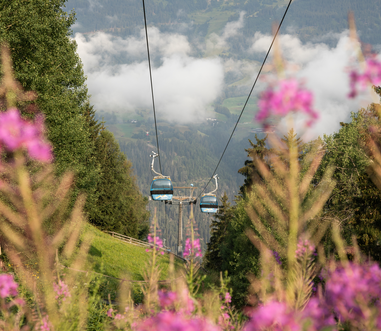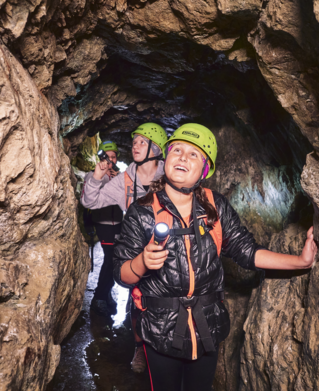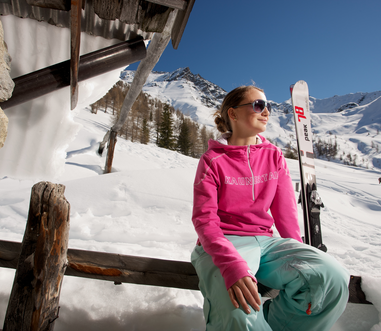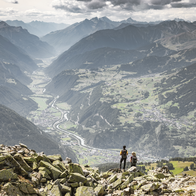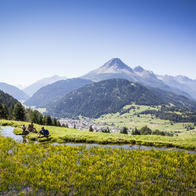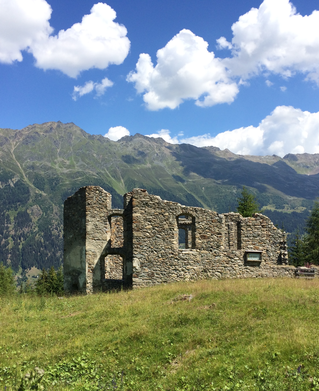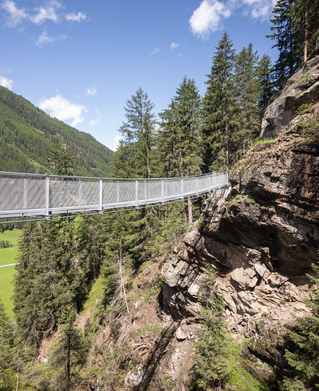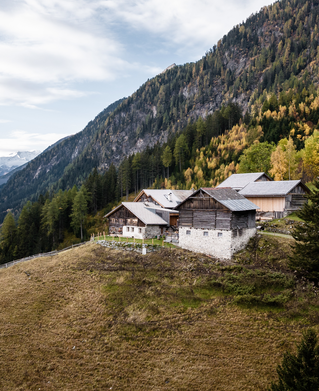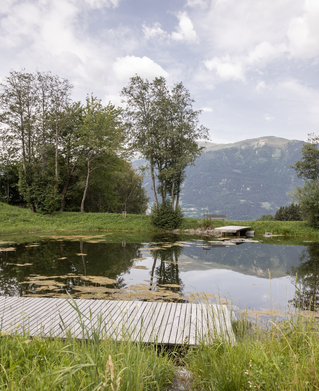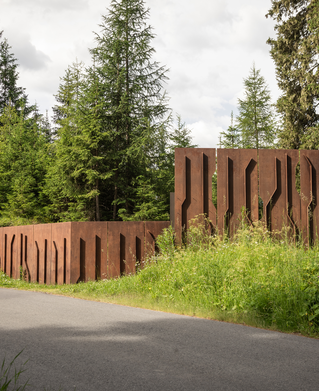Piller Moor
Top experience
The Piller Moor is located in the middle of the Kaunergrat Nature Park - directly on the Piller Landesstraße just behind the Kaunergrat Nature Park House.
The hike begins at the Piller Moor car park in the middle of the beautiful mountain forest on the Piller Sattel. Soon an idyllic path branches off to the left. In some places it was laid out as a beaten path, as the Romans already did when building roads in similar terrain. The path leads past the edge of the natural monument and allows exciting insights into this interesting habitat. When you arrive at the Moorturm you can enjoy the view of the 1.5 hectare natural monument. This is where the informative moor nature trail begins, which gradually reveals the secrets of "carnivorous" plants and very special animal species. You walk over the barrier-free walkways past the fountain to Torfhüttenplatz. Here you keep to the left to follow the path into the low moor. Soon afterwards you get to the former peat cutting, which was in operation until 1969. Via the again barrier-free footbridges you hike back to "Torfhüttenplatz" in a short time, where you follow the forest path back to the starting point.
If you want to extend the tour a little, you can start at the Kaunergrat Nature Park House.
Species: Edged hunting spider (Dolomedes fibriatus), the marsh hermit (Stethophyma grossum) or the high-moor mother-of-pearl butterfly (Boloria aquilonaris).
Plant species: peat moss, sundew (e.g. Drosera rotundifolia), butterwort (e.g. Pinguicula vulgaris) or water hose (Utricularia sp.)
Tip on the topic of climate change:
https://www.bundesforste.at/uploads/publikationen/Studie_Moore_im_Klimawandel_2010_01.pdf
Austria's moors store large amounts of carbon, which can escape through climate change, but also through the ongoing drainage of moors. 90% of the original moorland area in Austria has already been lost, 2/3 of the existing moorland areas in Austria are disturbed. A lack of precipitation, as forecast with global warming, could result in
In the future, the raised bogs in particular will also come under pressure. Model calculations by the Federal Environment Agency, which are published for the first time in this study, show that 85% of raised bogs in the middle of the 21st century will be exposed to a high climatic risk if the annual mean temperature rises by around 2.3 ° C. In order to protect the carbon stocks of the moors in Austria and to make the moors suitable for the climate, a dual strategy consisting of the active maintenance of intact moors and the renaturation of disturbed moors is required.

